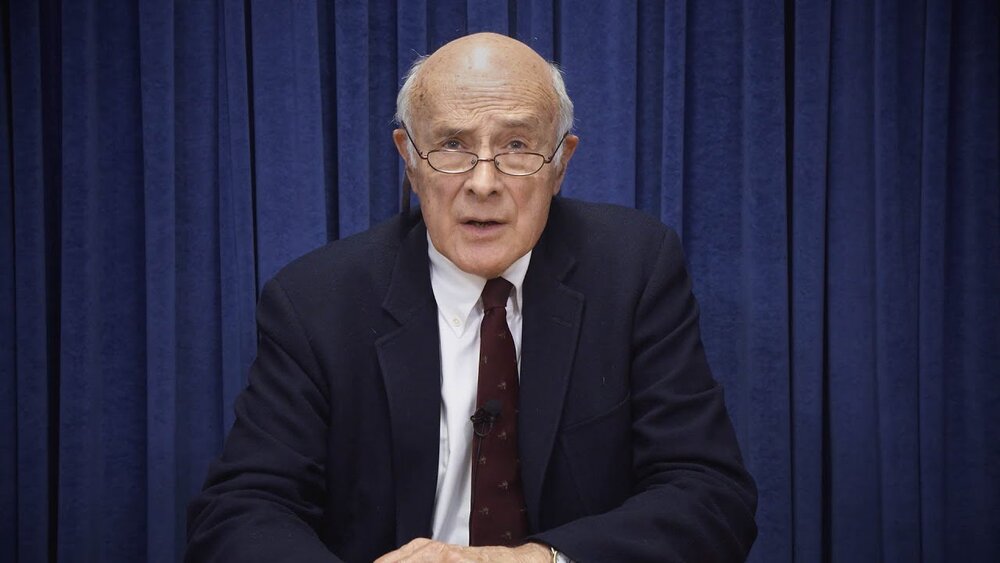Few U.S. presidents have been as amoral as Trump: Joseph Nye

TEHRAN - Professor Joseph S. Nye Jr., former Dean of the Harvard's Kennedy School of Government says “Many judgments about ethics and foreign policy are haphazard or poorly thought through, and too much of the current debate focuses on the personality of Donald Trump.”
Former U.S Assistant Secretary of Defense for International Security Affairs says “some of Trump’s actions are not unprecedented in the record of all our presidents since the Second World War.”
“No presidents have been perfectly moral, but few have been as amoral as Trump,” Nye tell in an exclusive interview to Tehran Times.
Following is the full text of the interview:
Q: What has been your main question in the book of “Do Morals Matter?”
A: Many people say morals play no role in foreign policy. States must provide for their own defense, and when survival is at stake, the ends justify the means. Where there is no meaningful choice there can be no ethics. As philosophers say, “ought implies can.” No one can fault you for not doing the impossible. By this logic, combining ethics and foreign policy is a category mistake, like asking if a knife sounds good rather than whether it cuts well, or whether a broom dances rather than sweeps well. By this logic, in judging a president’s foreign policy we should simply ask whether it worked, not also ask whether it was moral. While this view has some merit, it ducks hard questions by oversimplifying. The absence of world government does not mean the absence of all order. Some foreign policy issues relate to our survival as a nation, but most do not. Since World War II, the United States has been involved in several wars but none were necessary for our survival. And many important foreign policy choices about human rights or climate change or Internet freedom do not involve war at all. Most foreign policy issues involve trade-offs among values that require choices, not application of a rigid formula of “raison d’etat.”
Q: What Hypothesis did you use to answer this question? What is your central argument?
A: Since we are going to use moral reasoning about foreign policy, we should learn to do it better.
Q: What was the necessity of writing this book?
A: Unfortunately, many judgments about ethics and foreign policy are haphazard or poorly thought through, and too much of the current debate focuses on the personality of Donald Trump. As a perceptive reporter once told me, “Donald Trump is not unique; he is extreme.” My book, Do Morals Matter? shows some of Trump’s actions are not unprecedented in the record of all our presidents since the Second World War.
Q: Americans constantly make moral judgments about presidents and foreign policy. Some argues that many of these assessments are poorly thought through. Do you agree?
A: Good moral reasoning should be three-dimensional, weighing and balancing the intentions, the means, and the consequences of presidents’ decisions. A moral foreign policy is not a matter of intentions versus consequences but must involve both as well as the means that were used. Moreover, good moral reasoning must consider the consequences of general actions such as maintaining an institutional order that encourages moral interests, as well as particular newsworthy actions such as helping a human rights dissident or a persecuted group in another country.
Q: How much U.S. foreign policy affected by moral judgments?
A: Unfortunately, many judgments about ethics and foreign policy are haphazard or poorly thought through, and too much of the current debate focuses on the personality of Donald Trump. As a perceptive reporter once told me, “Donald Trump is not unique; he is extreme.” My book, Do Morals Matter? shows some of Trump’s actions are not unprecedented in the record of all our presidents since the Second World War. No presidents have been perfectly moral, but few have been as amoral as Trump.
